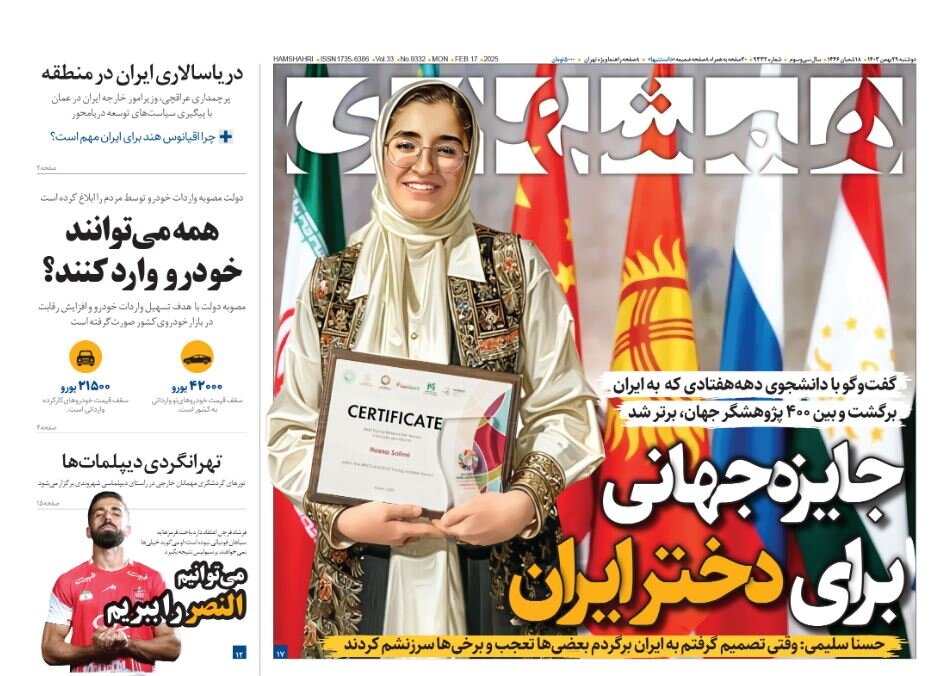The opposition has no funds and is struggling

TEHRAN - In a note, Hamshahri analyzed the confusion of the Iranian opposition abroad after the Trump administration cut off their fund.
It wrote: In one of his first actions after arriving in the White House, U.S. President Donald Trump decided to suspend most of the United States foreign aid. This executive order, which had wide-ranging effects on U.S. foreign policy, particularly confused Iranian opposition groups abroad, because an important percentage of this aid was used to fund the organizations that carry out anti-Iranian activities under the supervision of the U.S. government. Reports indicate that more than 30 opposition organizations and Persian-language media outlets outside Iran have held meetings to review the situation and consequences of these changes following Trump’s decision. Elon Musk, head of the Department of Government Efficiency (DOGE) in the second Trump administration, has officially called for the closure of such agencies, including Iran Wire. Musk has described the agency as a “criminal organization.” Although this decision was made mainly due to the waste of U.S. government money by these organizations, the inefficiency of these organizations also played a key role.
Shargh: Washington seeking secret talks with Tehran
In a commentary, Shargh pointed to the Al Arabiya report on the Iran-U.S. negotiations. The paper said: Following the relatively smooth messages exchanged recently between the United States and Iran, a senior European official revealed that efforts are underway to establish contact between the two countries. The administration of U.S. President Donald Trump is seeking direct and secret negotiations with Tehran about the country's nuclear program. The U.S. government will try to reach an agreement with Iran before October when the current nuclear deal signed in July 2015 and Trump withdrew from it in May 2018 expires. Trump has repeatedly stressed his willingness to negotiate with Iran in recent months but has also raised the possibility of a military confrontation. The U.S. president has repeatedly stressed that he would prefer to reach a “nuclear peace deal” that would allow Tehran to peacefully grow and prosper.
Farhikhtegan: Naive dream of a free world outside home
In an analysis, Farhikhtegan discussed the inhumane deportation of a group of Iranian immigrants from the United States to Panama. It wrote: The immigration policies of Western countries, especially the United States, have shown their true face in an inhumane and racist manner. What happened recently to several Iranian immigrants is a continuation of the same policies that Donald Trump had adopted during his first administration against immigrants from several Muslim countries, including Iran. This incident clearly shows the dual policies towards immigrants by the United States that make claims of support for freedom and human rights. However, in reality, it suppresses and deports immigrants without any regard for their basic rights. The issue of Iranian immigration to Western countries has become a hotly debated issue in recent years. Creating economic opportunities, improving social conditions, supporting talented persons, and creating hope among the younger generation are among the measures that can control the migration process.
Iran: Tehran's goodwill
The Iran newspaper analyzed the IAEA chief’s decision to postpone his quarterly report on Iran’s nuclear program. The newspaper said: Raphael Grossi, Director General of the International Atomic Energy Agency, decided to change the date of the report on Iran's nuclear activities to the Board of Governors. What could have added to the IAEA Director General's valid reasons for postponing the date of the report on Iran and linking it to a new form of cooperation with Iran was the tangible signs of our country's cooperation just a few days after the Board of Governors endorsed an anti-Iran resolution. Despite its retaliatory action in response to the West's breach of the nuclear deal and increasing its uranium enrichment to the level of 60 percent, Iran once again demonstrated its goodwill towards the Agency in the form of a temporary understanding. Tehran's focus on utilizing its intellectual and political capacities to resolve the nuclear issue could become an obstacle to the opportunism of extremist Western circles. Therefore, extending the deadline for Iran and the IAEA to reach a common ground provides an opportunity for the two sides to respond differently, based on an applicable mechanism, and of course, in line with the policy of engagement.
Leave a Comment